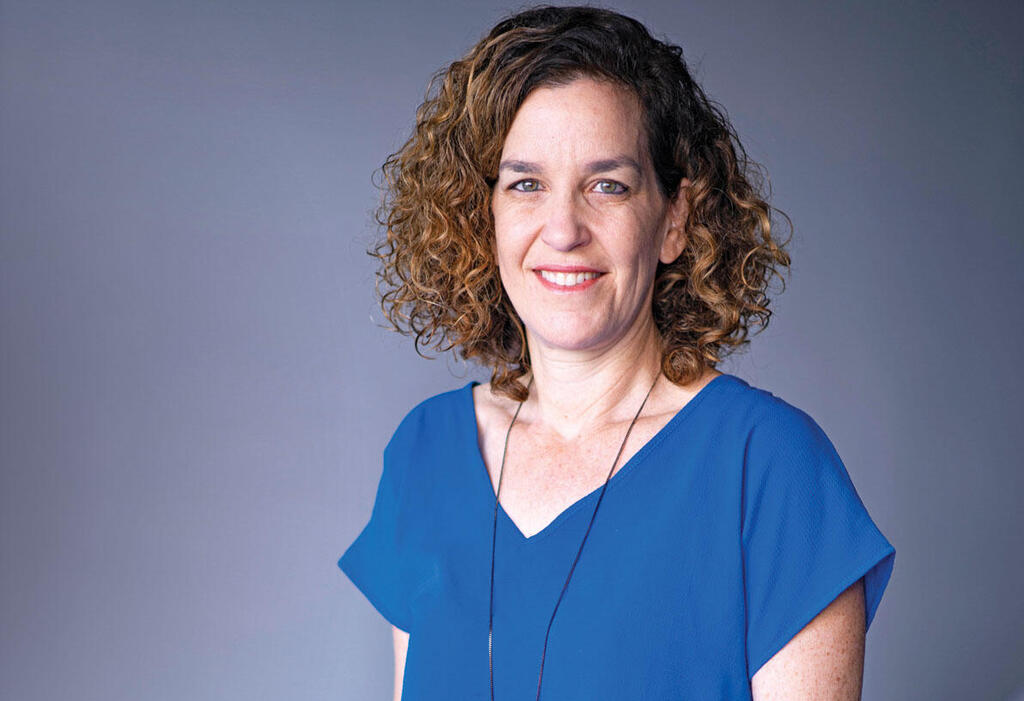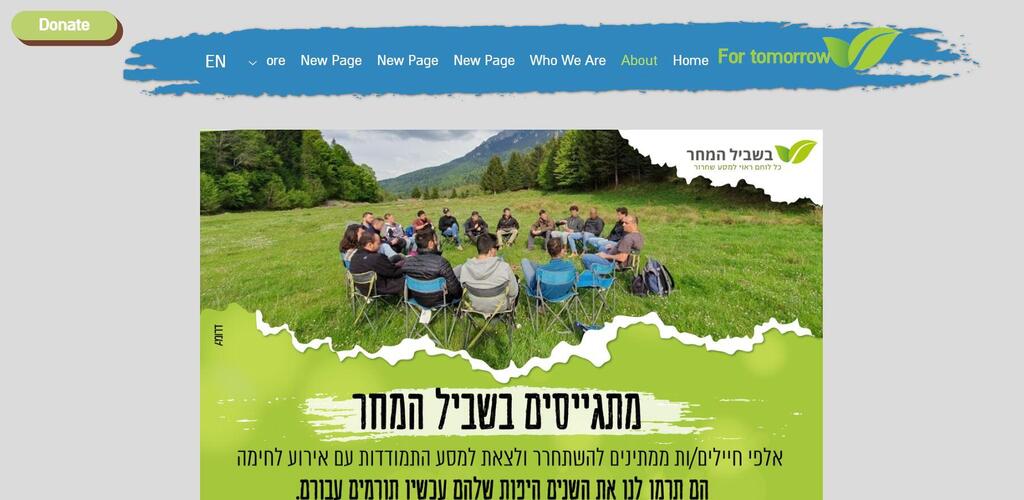Dr. May Nitzan, 40, is a family doctor from Ramat Gan. She is married, has three children, and serves as a tour guide at For Tomorrow — a non-profit assisting IDF veterans in dealing with combat trauma from their military service.
"As a cadet from a young age in a youth movement in Karmiel, where I grew up, I always knew I wanted to make a difference and save lives. I enlisted in the IDF in 2000, right when the then-IDF chief of staff Shaul Mofaz opened up roles for women that had until then been reserved for men only. It allowed me to serve as an air evac paramedic in Unit 669," she says.
"I had an amazing service and in the end, I continued in the reserves. In 2006, when the Second Lebanon War broke out, I volunteered for the reserves as an air paramedic.
During the war, I participated in the evacuation of the wounded from Lebanese soil. I did it many times, the injuries and the blood were not much different from what we did back in the military service, but something about the intensity of war was very, very different.
We have experienced complex situations, such as landing inside Lebanese territory, while constantly fearing being fired upon and loading wounded who require immediate life-saving treatment.
One time that I remember vividly, we landed in Lebanon to evacuate wounded soldiers, and along with the wounded, the bodies of soldiers who were killed in the field and had to be returned to Israel were brought onto the helicopter.
Since there was not enough room in the small helicopter for the injured on stretchers, for both the bodies and the care team, we found ourselves forced to physically sit almost on top of the bodies.
After airborne mechanic Keren Tendler's helicopter was shot down, I realized how fragile and fleeting everything is and that the helicopter can be intercepted at any given moment.
During the war, the mind is not free to think about and process what it sees and experiences. It is busy surviving, and in our case - treating the wounded. Then I realized that all I want to do in life is to be a doctor.
After the war, I returned to my life. I studied psychology for a year and then moved on to study medicine at Tel Aviv University. Life went on. I studied, I was in a relationship, I continued reserve duty in 669. I was fully functional, but not a day went by without a flashback, and my boots were always prepared. I did not meet the criteria of someone suffering from post-traumatic syndrome (PTSD), and yet I thought there was something here that required attention.
At the end of 2007, at the stage between studying psychology and medicine, I joined a trip to the Netherlands to which doctors, paramedics and soldiers who served in the Second Lebanon War were invited at the initiative of a dear man named Ilan Lior.
Two psychologists joined the journey, including Doron Marom, who later would become the professional director for For Future.
It was the first time we dared to talk, share, cry and get practical tools to deal with the things we saw. We returned from the trip with a clear and vivd understanding that we must pass this right on and allow more people to process their combat experiences.
In retrospect, my life changed twice: once in Lebanon and once in the Netherlands. When we returned, we started to establish For Tomorrow, with the help of Anat Samson Ioffe and many other good people without whom this magic would not have happened.
In the 15 years since, I built a family, finished my residency and became a primary care physician and head physician for the foundation. As the foundation's group facilitator, I have the right to walk today's soldiers through the steps to embark on this amazing journey.
"This isn't merely therapy. It's a personal and team journey that uses nature as a healing tool and a way to process coping with the horrors of war. We don't deal with definitions and diagnoses, but rather with the worthiness of any combat soldier to get the help he needs.
"The foundation has about 50 trips a year, both here and abroad. This year, it's an all-female trip with combat soldiers from the Oketz Special Forces Unit. We've opened a crowdfunding campaign to help more soldiers come on trips like these to get the sensation of healing they need.
"I hope my sons won't encounter what I did during service, but should it happen - I hope there will be someone to take them on a trip like this."



